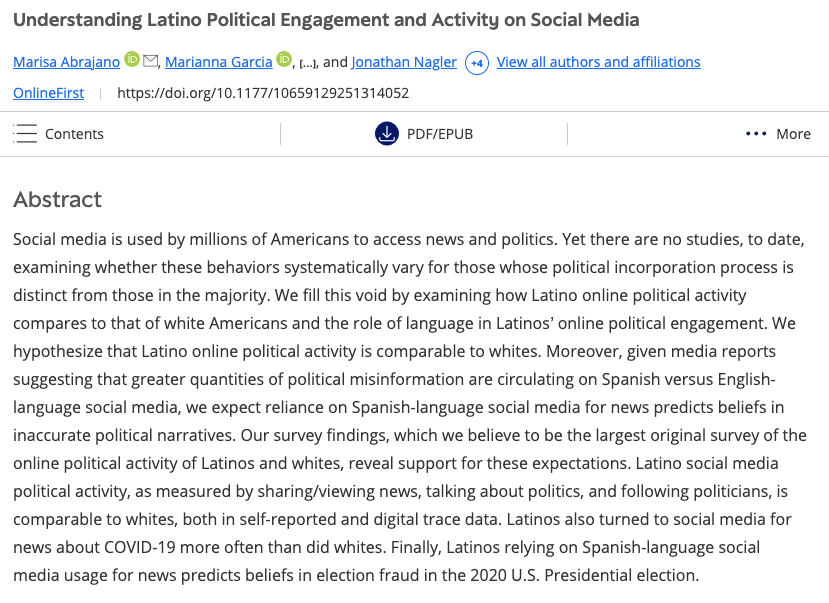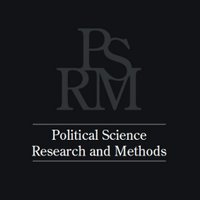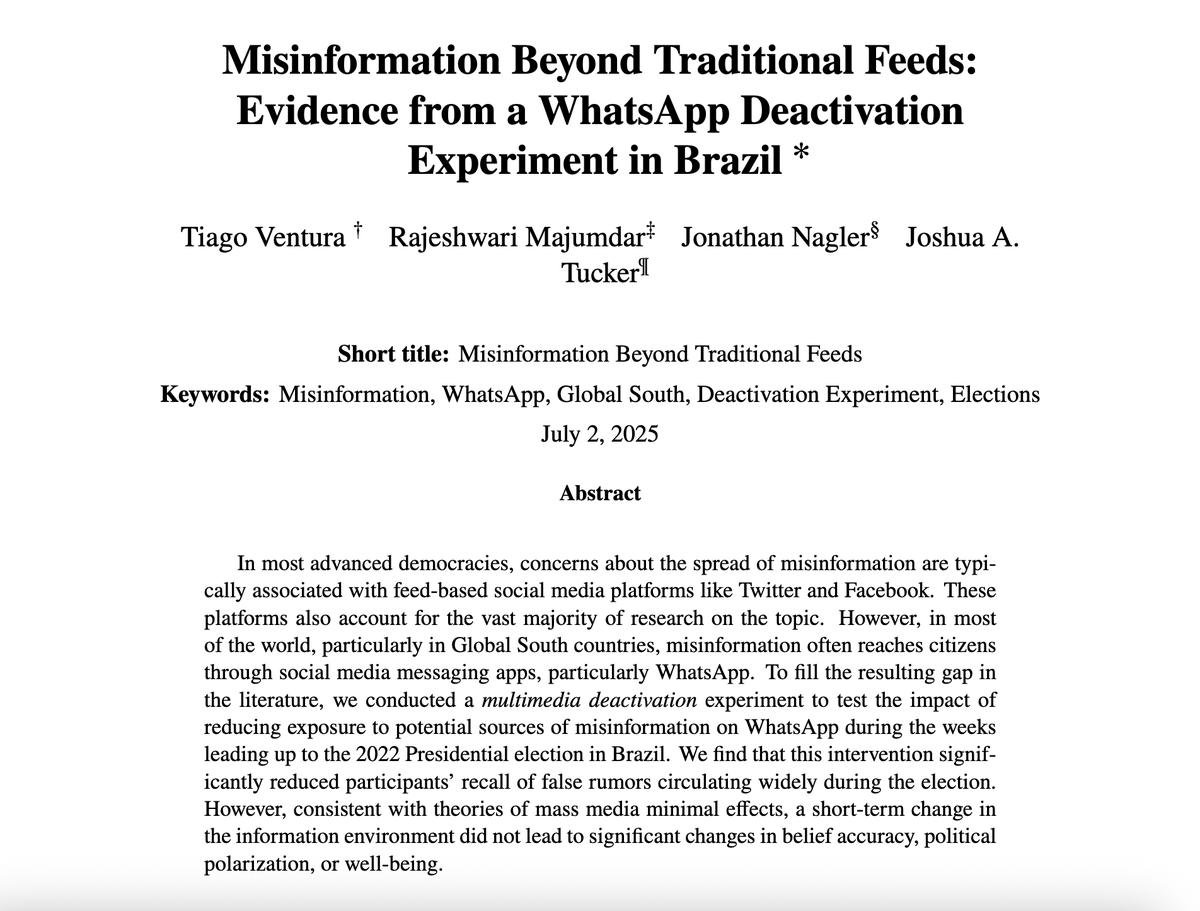
Robert Vidigal
@robbvidi
Stats @VU_CGD @LAPOP_Lab || PolPsych & LatAm || IRT & CompSocSci || Prev: @CSMaP_NYU || @SBUPoliSci Ph.D. || 🇧🇷🇺🇸
ID: 136642171
http://robertvidigal.com 24-04-2010 14:04:55
1,1K Tweet
820 Followers
1,1K Following

New in Political Research Quarterly: Our latest study analyzing Latino political engagement & activity on social media, from Marisa Abrajano & Marianna Garcia from UC San Diego, and Aaron Pope, Robert Vidigal, Edwin Kamau, Joshua Tucker, & Jonathan Nagler of CSMaP.


New publication on Political Research Quarterly with NYU's Center for Social Media and Politics folks 🤝Most research examines how Americans' online media consumption relates to political behavior. Much less is known about *Latino* online media consumption. We augment our survey findings with digital trace data. 📚📱📊



#FirstView from Political Analysis - Priming Bias Versus Post-Treatment Bias in Experimental Designs - cup.org/4htpJf6 - Matt Blackwell, Jacob R. Brown, Sophie Hill, Kosuke Imai & Teppei Yamamoto


Join me and Raphael Nishimura today for the final Spring Semester talk of the Workshop on International Survey Methods (WISM) @ 9am PT / 11am CT / 12pm ET / 5pm UK / 6pm CET time. Hope to see all of you there!

🚨 Two new post-docs at GW University!! Both affiliated with Institute for Data, Democracy & Politics, one will be more computational, the other more experimental. Links: gwu.jobs/postings/119777 and gwu.jobs/postings/119779 Spread the word!





⁉️In survey experiments, should you ask covariates before the treatment? ➡️Amanda Sahar d’Urso Tabitha Bonilla & G.Bogdanowicz study the effects of placing sensitive items in different parts of the survey flow and offer guidance on optimal question order cambridge.org/core/journals/… #FirstView



In the Global South, WhatsApp is more popular than X or Facebook. New in Journal of Politics @[email protected], we ran a WhatsApp deactivation experiment during Brazil’s 2022 election to explore how the app facilitates the spread of misinformation and affects voters’ attitudes. journals.uchicago.edu/doi/abs/10.108…


